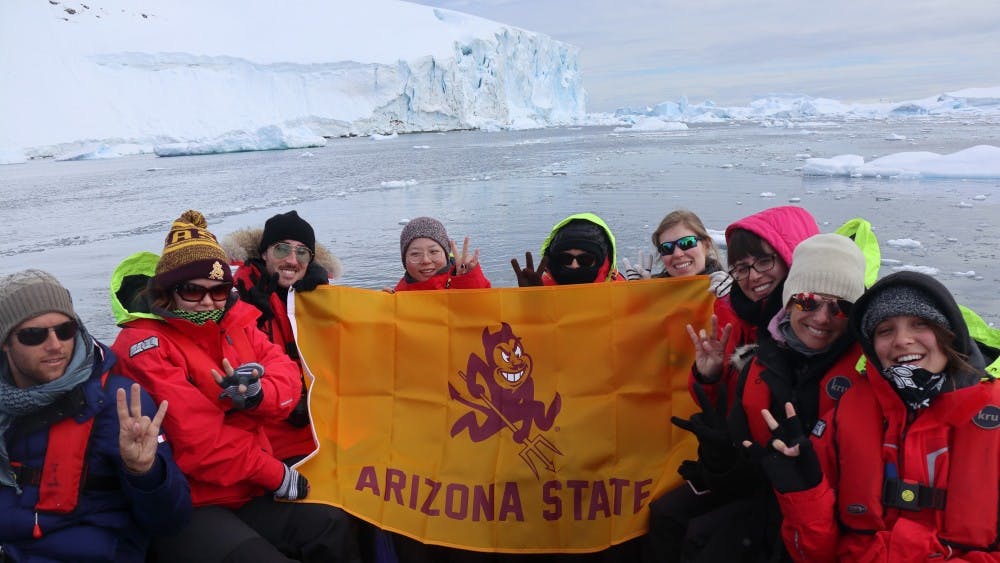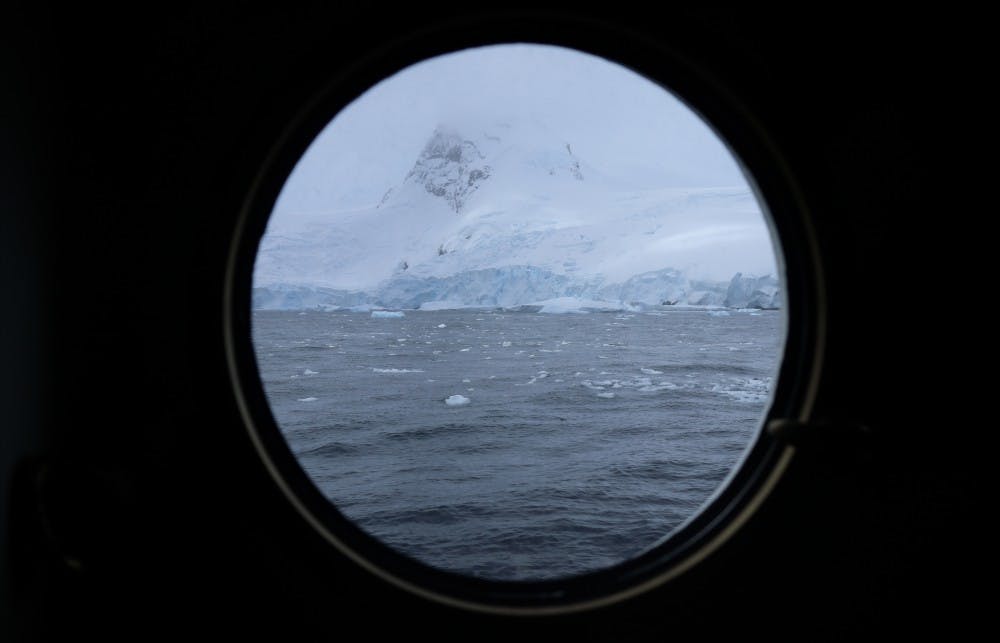Two years of planning, three flights, three days of boating through some of the stormiest seas in the world and one trip to Antarctica that was full of priceless memories.
And it almost didn’t happen.
In December 2018, seven students and three ASU faculty members made the difficult trip to Antarctica through a study abroad opportunity with ASU, making it the fourth university to do so.
“We partnered with three other universities who had previously been to Antarctica, and we created a consortium which was the teaching and the research side of it,” said Diana Bowman, a professor at the Sandra Day O’Connor College of Law and an associate dean at the School for the Future of Innovation in Society.
The University is No. 10 in the nation for study abroad student participation. Jameson Wetmore, co-leader of the trip and an associate professor at the School for the Future of Innovation in Society, said adding the seventh continent to the program was a logical next step.
“ASU prides itself on thinking about sustainability in as many ways as possible,” he said. “I really think that the Antarctic is an amazing laboratory because of the extremes that you experienced there. Everything comes into greater focus.”
Before the trip, students enrolled in a course where they researched a topic of interest which would later develop into a variety of extensive projects, with topics ranging from studying penguins and humanity's impact on their habitats to how to provide healthcare in extreme environments or remote areas.
One project the team worked on during the trip concerned birdwatching. Bowman said that there was a shift in patterns of bird species that traveled to Antarctica because of climate change. Data that the team collected from bird counting went to Cornell University’s Ebird, a database that collects bird sightings.
The other was an ecotourism project which examined the impacts of tourism on Antarctica and how to sustainably accommodate tourists.
The team's ship, chartered with One Ocean Expeditions, allowed 100 passengers to enter the continent at once to minimize human impact on the environment. The group took other extensive steps to protect wildlife, such as scrubbing visitors’ boots before and after they stepped foot on the continent to prevent spreading bacteria.
“You gain a respect for and an understanding of the ecosystems,” Oliver Pemberton, a junior majoring in theater and a student on the trip, said. “In the U.S., we’re able to ignore that because we live in such a human-based society that we forget that everything in nature has a finite beginning and an end.”
Wetmore and Bowman said ASU is planning another trip to the frozen continent in the 2020-2021 academic year.
It took two years and tireless effort to plan the voyage, but two weeks before departure the team learned that their boat would not be ready in time for the voyage.
“We went four days thinking our entire plans were canceled,” Wetmore said, “(but) the company that runs the ships was able to find us another boat.”
The catch was that they would have to leave later than planned, and as a result three students were unable to make the trip.
During their time on the continent, the team went iceberg hunting, whale-sighting, penguin watching on zodiac boats, hiking and more.
For pre-professional health science senior Jackson Merten, one memory he will never forget is the sound of the ice crackling in the water.
“We took several minutes at one point to listen to a very old glacier,” he said. “We turned off the engine for a good couple of minutes and I just remember standing there, wind in my face, and listening to this incredible crackling sound."
As a bird and penguin enthusiast, Pemberton was also excited about the opportunity to see penguins, despite being told to stay a respectful distance from them.
The team said their time spent together was invaluable and one of their favorite memories was when they embarked on a “polar plunge,” jumping into the frigid waters together.
For Bowman specifically, that experience highlighted the bond she built with her traveling companions.
“I got to see so much personal growth within my students within that 10 days,” Bowman said. “To me as an educator, to see your students grow through that transition is a very rich experience.”
Because Antarctica is widely untouched by human's technological impact, tourists are advised to leave some stones unturned when exploring — and the students had no problem with that.
“The only thing that you can bring with you back home are memories and photos, and you can only hope that that’s good enough for those around you,” Merten said. “And you don’t even want to take anything with you; you want to leave it just as it was for the next person.”
Reach the reporter at nschon@asu.edu and follow @schonn2 on Twitter.
Like The State Press on Facebook and follow @statepress on Twitter.





